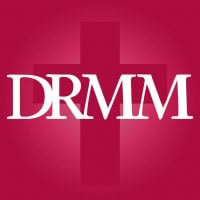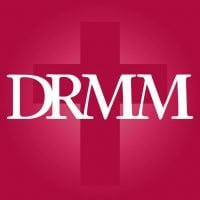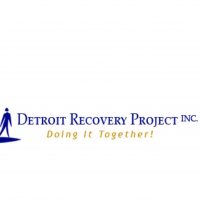
Detroit Recovery Project Detroit Recovery Project
Drug Rehab Center in Highland Park, Michigan
- Substance Abuse
- Opioid Addiction
- Drug Addiction
- Alcoholism
The Detroit Recovery Project is a highly respected and accredited addiction treatment facility located in Highland Park, MI that offers comprehensive drug rehab with private health insurance, individualized programs, ongoing support, 12-Step meetings and recovery groups to help individuals become empowered to overcome their addiction.
About This Michigan Facility
The Detroit Recovery Project in Highland Park, Michigan is a comprehensive residential treatment facility dedicated to helping individuals achieve recovery from addiction. Founded in 2010, the facility provides a range of evidence-based treatment and recovery services, such as addiction education, relapse prevention, psychological and psychiatric treatment, medication-assisted treatment, and individual, group, and family counseling. Additionally, the facility encourages and supports the pursuit of spiritual and emotional growth as part of the healing process.
Detroit Recovery Project offers a variety of services to individuals struggling with addiction and substance use disorders, including medical care, physical health evaluations, and social recreational activities. Holistic therapies are integrated into the treatment plan to promote overall health, such as mindfulness training and expressive art therapy. Evidence-based methods such as cognitive behavioral therapy and twelve-step facilitation are employed to address the underlying cause of addiction and foster lasting recovery.
Detroit Recovery Project is certified by the Michigan Department of Licensing and Regulatory Affairs and is also accredited by the Commission on Accreditation of Rehabilitation Facilities (CARF). The facility promotes community involvement and collaboration and is involved in several community initiatives such as the Detroit Recovery Project Art Gallery, which provides a platform for local artists to showcase their work. They have also received several awards and recognition from organizations such as the National Institute on Drug Abuse, the American College of Psychiatrists, and the Michigan Department of Mental Health.
Genders
Ages
Modality
Additional
Accreditations

CARF
The Commission on Accreditation of Rehabilitation Facilities (CARF) is a non-profit organization that specifically accredits rehab organizations. Founded in 1966, CARF's, mission is to help service providers like rehab facilities maintain high standards of care.
Conditions and Issues Treated
The inappropriate use of any drug in Highland Park, MI is substance abuse. This involves alcohol, medications, and illicit drugs. With a combination of physical and psychiatric therapies, drug addiction is successfully treated at Detroit Recovery Project Detroit Recovery Project. After Detox is complete, individuals follow-up with treatments treating the root cause of the addiction.
Opioid Addiction Treatment supports people recovering from addiction to prescription drugs as well as illegal opioids. This is a hospital-based or residential treatment. Depending upon one’s age, detox without the appropriate medication may be unpleasant or even dangerous–some get body aches, fever, chills, while others may even have seizures.
Opioid treatment involves medically assisted detox, physical and mental support. Most rehabilitations use an array of treatments to ensure overall wellbeing, such as Medication-assisted therapy (MAT) in which one gets behavioral therapy, medicines, and counseling. A client-centered approach can reduce one’s chances of relapse. Therapists at work with the client to figure out environmental and behavioral triggers, giving them the power to change the patterns.
Levels of Care Offered at Detroit Recovery Project Detroit Recovery Project
This center offers a variety of custom treatment tailored to individual recovery. Currently available are Aftercare Support, Drug Rehab, Outpatient, with additional therapies available as listed below.
Outpatient rehabilitation is a treatment that exists if a patient is not checking into Detroit Recovery Project Detroit Recovery Project long term. In addition to helping them recover, the patient attends regular therapy sessions and detox and participates in other therapies. However, this is all primarily done from home. As a follow-up to inpatient treatment, outpatient treatment is usually recommended.
After rehabilitation, it helps people return to their everyday lives. It may also be an alternative to inpatient care in some situations. If they cannot leave their jobs, children, or don’t have the money for inpatient care, people can choose this method. Inpatient therapy, however, is the best method and most suggested level of treatment offered by Detroit Recovery Project Detroit Recovery Project in recovering from addiction.
Treatment for substance abuse does not cease after an individual successfully completes a detox or rehabilitation program. A vital follow-up treatment service is aftercare support provided to individuals at Detroit Recovery Project Detroit Recovery Project in Michigan after they attain initial sobriety.
Aftercare support often takes the following forms: 12-Step Programs, Outpatient Treatment Programs, and Support Groups. The most effective aftercare programs are tailored to meet an individual’s specific needs and circumstances.
Therapies & Programs
Recovery can be more effective if the entire family’s involved. Family therapy hosted by Detroit Recovery Project Detroit Recovery Project brings in the addict’s family to explore genetic factors. It gives loved ones the tools for dealing with addiction and its underlying mental issues. It is a recommended step in helping addicts adapt to sober living.
Trauma is one of the most common causes of psychological disorders. It’s often found in people with addiction diagnoses. Trauma therapy addresses this by examining the emotions and thoughts people have formed due to past traumas. Traumas are complex but trauma therapy can reduce their ability to contribute to addictive behaviors.
A 12-Step Program is a common method that is used to treat addiction. This format is used for both drug and alcohol treatment. It is extremely popular and successful for large numbers of people and the staff at Detroit Recovery Project Detroit Recovery Project are trained to assist in 12-step management.
Payment Options Accepted
For specific insurance or payment methods please contact us.
Is your insurance accepted?
Ask an expert, call (888) 674-0062
Additional Details
Specifics, location, and helpful extra information.
Highland Park, Michigan 48203 Phone Number(313) 365-3100 Meta DetailsUpdated November 25, 2023
Staff Verified
Patient Reviews
There are no reviews yet. Be the first one to write one.
Highland Park, Michigan Addiction Information
Michigan has the second-highest rate of drug and alcohol abuse in the nation. Heroin is linked to more than 50% of the state's hepatitis C cases. Marijuana is the drug most often associated with crimes in Michigan, followed by methamphetamines. Opioids alone are responsible for almost 20% of all drug overdose deaths in Michigan.
Highland Park, Michigan has seen a rise in drug addiction and abuse problems in recent years. 9.2% of Highland Park residents reported using illicit drugs. The most commonly abused drug is marijuana with 10.9% of high school students abusing it. There were 53 drug overdose deaths in Highland Park in 2016. Some of the most common types of treatment include inpatient rehab and outpatient rehab.
Treatment in Nearby Cities
- Manistique, MI (290.5 mi.)
- Redford, MI (10.6 mi.)
- Cheboygan, MI (233.6 mi.)
- Menominee, MI (292.6 mi.)
- Reed City, MI (158.2 mi.)
Centers near Detroit Recovery Project Detroit Recovery Project
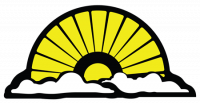
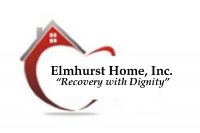

The facility name, logo and brand are the property and registered trademarks of Detroit Recovery Project Detroit Recovery Project, and are being used for identification and informational purposes only. Use of these names, logos and brands shall not imply endorsement. RehabNow.org is not affiliated with or sponsored by Detroit Recovery Project Detroit Recovery Project.


